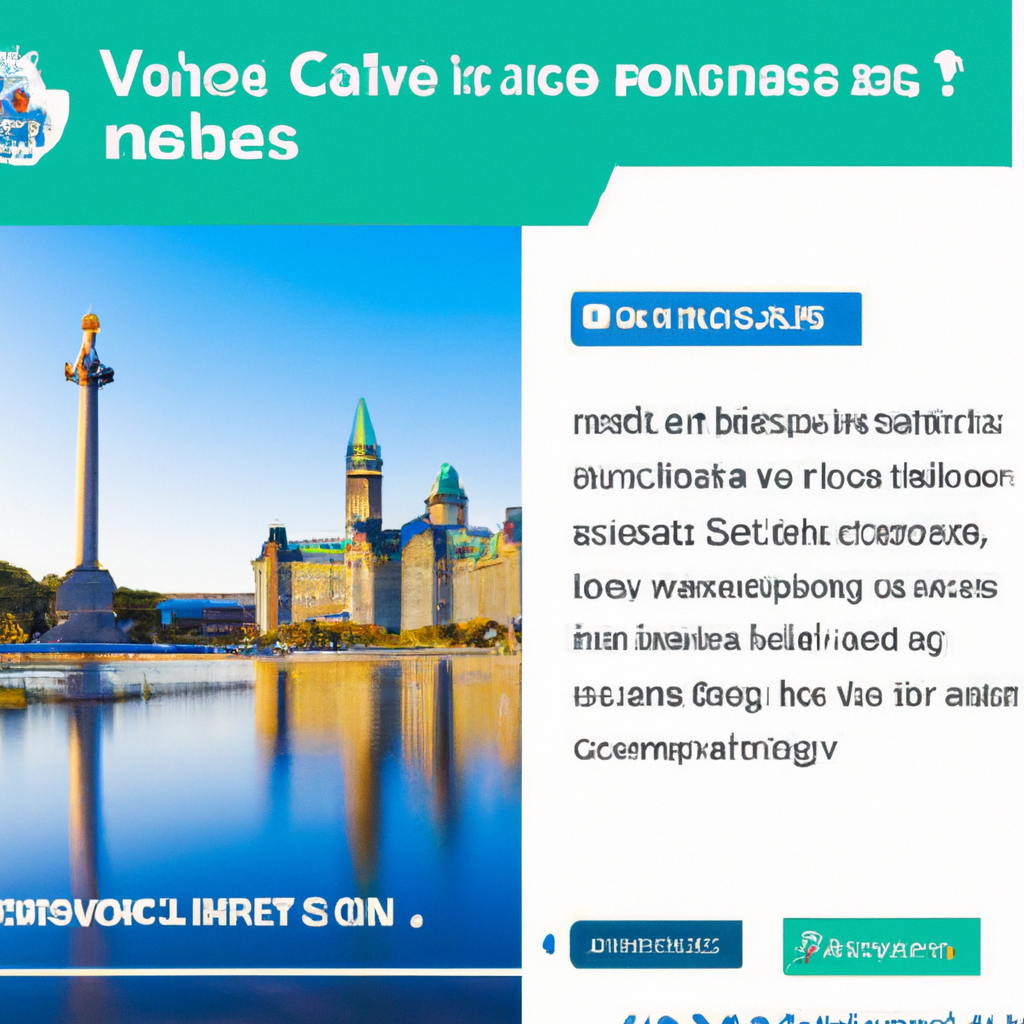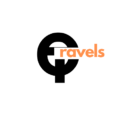So you’ve made the big decision to move to Canada, eh? Congratulations! With its stunning natural beauty, diverse culture, and high quality of life, it’s no wonder why Canada is a popular destination for people looking to start a new chapter in their lives. But before you pack your bags and head north, there are a few important things you need to know. From obtaining the necessary visas and finding a place to live, to understanding the healthcare system and getting your finances in order, this comprehensive moving to Canada checklist will ensure you’re fully prepared for your exciting adventure in the Great White North.

Visa and Immigration
Determine your eligibility
Before moving to Canada, it is crucial to determine your eligibility for immigration. The Canadian government offers various immigration programs, each with its own eligibility requirements. Take the time to assess which program suits your needs and qualifications. Factors such as education, work experience, language proficiency, and age will play a role in determining eligibility.
Choose the right visa category
Once you have determined your eligibility, it’s time to select the appropriate visa category that aligns with your purpose of moving to Canada. Whether it is for work, study, or permanent residency, each visa category has its own set of requirements and application procedures. Make sure to carefully research each category to avoid any complications during the application process.
Gather required documents
To successfully apply for a Canadian visa, you will need to gather specific documents depending on the category you have chosen. These documents may include but are not limited to your passport, birth certificate, education and work experience certificates, proof of funds, and proof of language proficiency. It is essential to ensure that all your documents are complete, accurate, and up-to-date.
Submit your application
When you have gathered all the necessary documents, it’s time to submit your visa application. This is typically done through an online application system. Take the time to thoroughly review your application to avoid any errors or omissions. Pay the required fees and submit the application within the designated timeframe. Be prepared for the possibility of additional requests for documents or interviews during the processing of your application.
Prepare for the medical exam and biometrics
As part of the immigration process, you may be required to undergo a medical examination and provide biometric information. The medical exam ensures that you are in good health and admissible to Canada. You will need to visit an approved panel physician for this examination. Biometrics refer to the collection of fingerprints and a photograph, which is used for identity verification. Familiarize yourself with the process and requirements to ensure a smooth experience.
Housing
Research the housing market
Finding suitable housing is crucial when moving to Canada. Research the housing market in your desired city or province to gain an understanding of the available options, pricing, and rental or purchasing trends. Consider factors such as location, proximity to amenities and transportation, safety, and affordability to find the best fit for your needs.
Find a suitable rental or purchase property
Once you have familiarized yourself with the housing market, begin your search for a suitable rental or purchase property. Utilize online listings, real estate agents, and local networking to find options that meet your requirements. Take virtual tours or schedule in-person visits to assess the property and inquire about any necessary information or paperwork.
Arrange for a home inspection
Before finalizing your rental or purchase agreement, it is strongly recommended to arrange for a professional home inspection. This will help identify any existing or potential issues with the property, allowing you to make an informed decision. Ensure that the home inspector is certified and provides a detailed report.
Set up utilities and services
In Canada, it is essential to set up utilities and services for your new home. Contact local providers to arrange for electricity, water, heating, internet, and other necessary services. Be aware of any initial setup fees or deposits required. It is also important to update your contact information with relevant service providers and inform them of your move-in date.
Healthcare
Understand Canada’s healthcare system
Before arriving in Canada, it is important to familiarize yourself with the country’s healthcare system. Canada offers universal healthcare coverage, meaning that most medically necessary services are provided at no cost to Canadian citizens and permanent residents. However, healthcare coverage may vary among provinces, so it is essential to understand the specific policies and requirements of your intended province of residence.
Apply for health insurance
While Canada offers comprehensive healthcare coverage, there may be a waiting period before you become eligible for government health insurance. It is advisable to obtain private health insurance to cover any healthcare expenses during this waiting period. Research and compare different insurance providers to find a plan that suits your needs.
Find a family doctor
Having a family doctor is crucial for long-term healthcare in Canada. Once you have arrived, research and register with a family doctor in your area. Check with local clinics, hospitals, or healthcare facilities for available doctors. It is important to establish a relationship with a family doctor who can coordinate your healthcare needs and provide regular check-ups.
Transfer medical records
If you have existing medical records from your home country, it is recommended to have them translated into English or French and transfer them to your new family doctor. This will provide comprehensive information about your medical history, enabling your doctor to provide appropriate care and make informed decisions regarding your healthcare.
Education
Research education options
If you are moving to Canada with dependents or planning to pursue studies yourself, it is essential to research education options available in your desired city or province. Investigate the quality of schools, colleges, and universities, curriculum offerings, extracurricular activities, and the admission process. Consider factors such as location, reputation, and support services for international students.
Apply for admission to schools or universities
Once you have identified the desired educational institution, follow their admission process guidelines to apply. Pay attention to application deadlines, required documents, and any specific entry requirements, such as language proficiency tests or academic transcripts. Keep in mind that different institutions may have varying application procedures and conducting thorough research is key.
Prepare for language proficiency tests
If English or French is not your first language, you may be required to demonstrate language proficiency through standardized tests such as IELTS or CELPIP for English or TEF for French. Research the specific language requirements of your desired institution or program and prepare accordingly. There are various resources available, including language courses and practice materials, to help you improve your language skills.
Transcript evaluation
If you have completed education outside of Canada, you may need to have your academic transcripts evaluated for equivalency. This ensures that your previous education is recognized and considered during the admission process. Contact the designated organizations for academic credential assessment to understand the process and requirements for your specific educational background.

Finances
Open a Canadian bank account
Opening a Canadian bank account is essential to manage your finances effectively. Research different banks and their account options, keeping in mind factors such as fees, accessibility, online banking services, and customer support. Visit a local branch with your identification documents to open an account. Ensure that you understand the terms and conditions and be prepared to provide the necessary information for the account setup.
Transfer funds and assets
If you plan to transfer funds or assets from your home country to Canada, explore the most cost-effective and secure ways to do so. Consider options such as wire transfers, international money orders, or working with a reputable currency exchange service. Familiarize yourself with the rules and regulations regarding the maximum amount you can bring into Canada without declaring it.
Understand tax obligations
Understanding and complying with Canada’s tax obligations is essential for all residents. Familiarize yourself with the Canadian tax system, including income tax rates, deadlines, and any available deductions or credits. Research if there are any tax treaties between Canada and your home country that may affect your tax obligations.
Update your financial information
Upon arriving in Canada, it is crucial to update your financial information with relevant entities. This includes updating your banking information, credit card details, investment accounts, and any other financial services you utilize. Notify your previous financial institutions of your move to ensure smooth operations, prevent any interruptions, and maintain accurate records.
Driver’s License and Transportation
Transfer your driver’s license
If you plan to drive in Canada, check the specific requirements for transferring your driver’s license. Some provinces may allow you to exchange your foreign driver’s license for a Canadian one, while others may require you to take a knowledge and road test. Contact the local transportation authority or visit their website for detailed information and necessary documentation.
Obtain car insurance
If you own or plan to purchase a vehicle in Canada, it is mandatory to have car insurance. Research different insurance providers, compare coverage options, and obtain a policy that meets your needs. Take into consideration factors such as liability coverage, collision coverage, and comprehensive coverage. Ensure that you are familiar with the local regulations and requirements for car insurance in your province.
Familiarize yourself with public transportation
Before you acquire a car or if you prefer using public transportation, take the time to familiarize yourself with the public transportation system in your area. Research bus routes, subway lines, schedules, and fare options. This will help you navigate within the city efficiently and save you time and money. Additionally, consider obtaining a transit pass if it aligns with your commuting needs.
Purchase a vehicle
If you decide to purchase a car in Canada, research dealerships and private sellers to find a vehicle that fits your preferences and budget. Familiarize yourself with local regulations, the process of purchasing a vehicle, and any required documentation. Consider factors such as fuel efficiency, maintenance costs, and insurance premiums when making your decision.

Employment
Search for job opportunities
Research job opportunities in your desired city or province by utilizing various online job boards, professional networking platforms, or local employment agencies. Tailor your search based on your qualifications and desired industry. Attend job fairs and networking events to connect with potential employers and learn about the local job market.
Prepare a Canadian-style resume
When applying for jobs in Canada, it is important to have a Canadian-style resume that aligns with local expectations. Highlight your skills, qualifications, and work experience in a format that is easily understood by Canadian employers. Research resume templates and seek guidance from career centers or employment agencies to create a compelling resume.
Apply for jobs
Once your resume is finalized, start applying for jobs through various channels. Tailor your application to each job opportunity, emphasizing relevant skills and experience. Follow the specific application instructions and submit all required documents, such as a cover letter and professional references. Be prepared for potential interviews and follow up promptly with any requested additional information.
Understand the job market
Understanding the job market in your desired city or province is crucial for a successful job search. Research industries that are thriving and in demand, as well as those that have a competitive job market. Take into consideration factors such as salary ranges, work conditions, and potential career growth opportunities. Networking with professionals in your field can provide valuable insights and job leads.
Social Insurance Number (SIN)
Apply for a SIN
To work or receive benefits in Canada, you will need a Social Insurance Number (SIN). Apply for a SIN as soon as possible after arriving in Canada. You can do this by visiting a Service Canada office with the necessary identification documents. The SIN is a unique nine-digit number that is used to track your income, taxes, and benefits.
Know your rights and protections
Once you have obtained your SIN, familiarize yourself with your rights and protections as a worker in Canada. This includes understanding employment standards, health and safety regulations, and laws regarding harassment and discrimination. Research the proper channels to report any violations or seek assistance if needed.
Update your SIN information
If there are any changes to your personal information, such as a change of address or name, it is important to update your SIN information. Contact Service Canada or visit their website to update your information promptly. Keeping your personal information up-to-date ensures accurate record keeping and avoids any potential issues regarding your SIN.

Language and Culture
Improve your English or French skills
Depending on the province you are moving to, either English or French will be the predominant language. Improving your language skills is crucial to ensure effective communication and integration into Canadian society. Consider taking language courses, participating in language exchange programs, or practicing with language-learning apps to enhance your language proficiency.
Understand Canadian culture and customs
Canada is known for its multiculturalism and diverse population. Take the time to understand Canadian culture, customs, and social norms to facilitate your integration. Familiarize yourself with Canadian holidays, traditions, and etiquette. Engage in community events, connect with local residents, and be open to embracing new experiences.
Adapt to the weather
Canada experiences varying climates throughout the year, from mild summers to harsh winters. Depending on your chosen province, prepare yourself for the specific weather conditions. Invest in appropriate clothing, footwear, and accessories to stay comfortable and safe in different seasons. Keep informed about weather forecasts and any necessary precautions, especially during extreme weather events.
Settling in
Register with the local government
Upon arrival, it is important to register with the local government in your city or town. This may involve visiting the municipal office or registering online, depending on the specific requirements of your area. Registering with the local government ensures that you receive important information, updates, and access to local services.
Join community groups and organizations
Joining community groups and organizations provides an excellent opportunity to meet new people, engage in social activities, and foster a sense of belonging in your new community. Research local community groups, volunteer organizations, sports clubs, or hobby groups based on your interests. This will help you establish connections and build a support network.
Find healthcare providers and schools
In your new community, it is important to find healthcare providers, including dentists and specialists, in addition to schools for yourself or your dependents. Research local healthcare and educational facilities, read reviews, and seek recommendations if possible. Register with healthcare providers and enroll your children in schools to ensure timely access to services.
Explore your new neighborhood
Take the time to explore your new neighborhood and familiarize yourself with the amenities, services, and recreational opportunities available. Find out about local parks, libraries, community centers, and other facilities. Connecting with your surroundings and discovering nearby attractions will help you settle in and feel more at home.
Moving to Canada involves a comprehensive checklist of tasks and preparations. By following this guide, you can navigate each step with confidence and ease. Remember to thoroughly research, gather all required documents, and seek assistance when needed. With careful planning and preparation, your transition to Canada will be smooth, allowing you to embrace the opportunities and experiences that await you in your new home.

